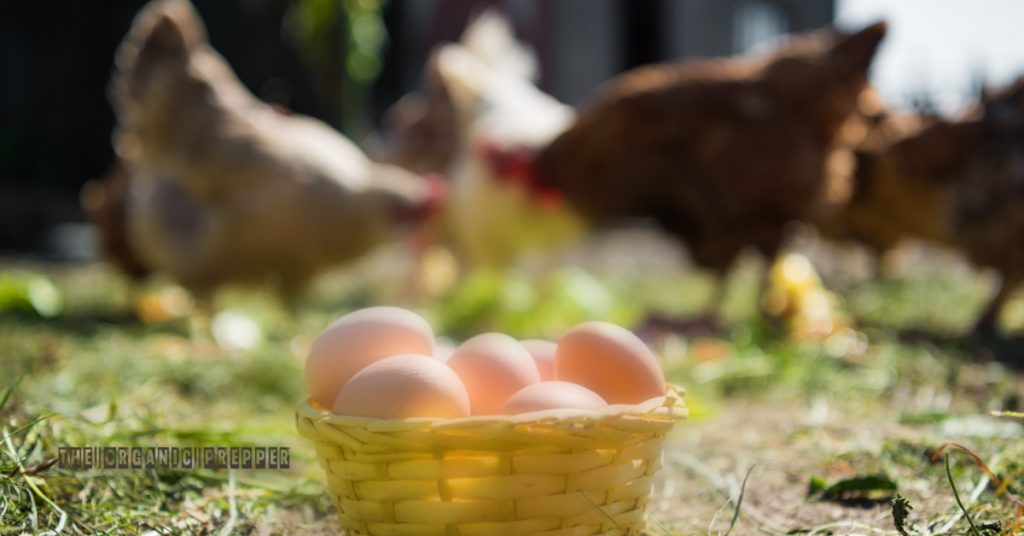by Daisy Luther, The Organic Prepper:

Whether you call it St. Lucia’s Day, Candlemas, or Imbolc, the halfway point between the winter equinox and spring solstice occurs this week, and that traditionally has meant eggs. I got my first egg of the year just last week and am looking forward to more.
The average price of eggs is currently $4.25 per dozen, up from $1.79 a year ago. Now, this is a nationwide average. In my area, I have not found anything for less than $5.50 per dozen in over a month. Also, my store only carries medium eggs these days. I’m not sure when the last time was that I saw large or extra-large.
TRUTH LIVES on at https://sgtreport.tv/
(Fun fact: I have a good friend who has been in the egg industry for years, and before Covid, Americans either exported medium eggs to Asia or just threw them out. There was zero domestic demand. Now medium eggs seem to be all we can get.)

Unfortunately, there are a variety of problems facing egg producers at the moment.
The big talk has been bird flu. Nearly 60 million birds have either died from the flu or have been put down due to the most recent outbreaks. That puts a dent in production.
Less widely discussed have been the damages to egg production facilities, but they’ve occurred, too. Just this past Saturday, January 28, a fire occurred at an egg facility in Connecticut, killing over 100,000 birds. No causes for the fire have been given yet.
The OP reported on the food facility fires back in April, but mainstream media keeps insisting that there’s nothing to see here.
I don’t know enough about average industrial facility fire rates to make a bulletproof argument regarding whether or not these fires have been intentional. However, even if they are just a series of accidents, this series of accidents could be seen as evidence of the increasing Thirdworldization of the U.S.
Fabian described Thirdworldization as a slow-burning SHTF event, where things just gradually get worse and worse. Quality and availability go down; prices and crime go up; quality of life gradually erodes. Decreasing workplace safety would go along with this. For decades, the American workplace has been getting cleaner and safer. The string of fires, if nothing else, gives evidence that that’s no longer the case. Some of the fires in 2022 occurred in plants known to have sloppy safety protocols.
And this, of course, affects our ability to process food, which in turn leads to decreased availability and increased prices.
Given these situations, it’s not unreasonable that more people than ever have expressed interest in starting their own backyard flocks. Between the pandemic, food shortages, and general increased awareness about animal welfare, many urban and suburban dwellers have gotten into raising their own birds.
However, many of these same small flock owners have been complaining recently about a larger-than-usual drop in egg production. Rumors have been going around about feed being tampered with, and anecdotally, people have been saying they’ve had problems with the popular brands Producer’s Pride and DuMor. Both of these happen to be owned by Purina and typically have a 16% protein content. People have been claiming that the feed manufacturers have lowered the protein content recently, though I can’t find any confirmation of that. I have always bought my feed from a small regional producer, so I didn’t start paying attention until recently.
And unfortunately, I haven’t been alone in my lack of attentiveness. Tucker Carlson just did an episode about problems with our food supply and points out that it’s hard to get solid evidence about anything from the fires to the feed issues because the people in power are genuinely not interested. Curiously, he does remind us at 0:54 that Biden promised food shortages last year. Biden seems to be delivering.
It might be time to start getting feed locally.
I am hesitant to point fingers and level accusations at big-feed producers without anything more to go on than hearsay.
However, if you are genuinely concerned about this, I think there are some excellent reasons to look into procuring feed locally from independent producers.
I began raising birds in 2014, catering to customers looking for pasture-raised, organically-fed birds. Now, I have never had an organic certification myself, but I have always bought feed from an organically certified producer. Despite the high cost, I have never had any regrets.
First of all, you get what you pay for, and higher-quality feed means higher-quality eggs. You will notice the difference in the color of the yolk, the texture of the white, and the hardness of the shell.
Read More @ TheOrganicPrepper.ca




